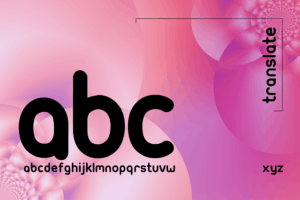Optimizing Communication: Professional Translation Services for UK Technical Clarity
For businesses aiming to thrive in the UK market, understanding and navigating technical guidelines is crucial. Professional translation services play a vital role in this process by offering accurate and culturally sensitive translations of UK techn…….

For businesses aiming to thrive in the UK market, understanding and navigating technical guidelines is crucial. Professional translation services play a vital role in this process by offering accurate and culturally sensitive translations of UK technical standards across diverse sectors. These services address the challenge of inconsistent documentation and ensure compliance with evolving regulations, especially in rapidly transforming digital landscapes. By leveraging expert translators, businesses can overcome language barriers, enhance productivity, and expand globally, making complex technical guidelines accessible worldwide. This ensures safe and efficient cross-border operations while maintaining quality and reliability.
Are your UK technical guidelines up to scratch? Ensuring clarity and conciseness is vital for effective communication, especially within complex industries. This article explores the importance of understanding and adhering to UK technical guidelines, delving into the current state of documentation clarity and the challenges faced by interpretations of intricate specifications. We uncover the benefits of professional translation services, provide key considerations for accurate translations, and share best practices to enhance conciseness in technical documents, all while highlighting successful case studies within UK standards. Discover how expert translation can optimise your guidelines for better comprehension.
- Understanding UK Technical Guidelines and Their Significance
- The Current State of Clarity in UK Technical Documentation
- Challenges in Interpreting Complex Technical Specifications
- Benefits of Engaging Professional Translation Services
- Key Considerations for Accurate Technical Translations
- Best Practices to Enhance Conciseness in Technical Documents
- Case Studies: Successful Translation Projects for UK Standards
Understanding UK Technical Guidelines and Their Significance

Understanding UK technical guidelines is crucial, especially for businesses aiming to navigate the local market seamlessly. These guidelines aren’t just a collection of rules; they are a comprehensive framework designed to ensure product and service quality, safety, and compatibility within the United Kingdom. From manufacturing processes to digital standards, each guideline plays a vital role in fostering a competitive yet regulated environment.
For companies offering translation services for UK technical guidelines and standards, comprehending these documents is half the battle won. Accurate and culturally sensitive translations are essential to convey the intended meaning without losing critical nuances. This is where expertise comes into play; professional translators must not only master the language but also grasp the technical jargon and regulatory context to deliver precise and compliant translations, thereby facilitating smooth operations for their clients.
The Current State of Clarity in UK Technical Documentation

The current state of clarity in UK technical documentation varies widely across industries and organisations. While some guidelines are renowned for their precision and conciseness, others can be convoluted and confusing. This inconsistency poses challenges for professionals relying on these documents, especially when dealing with intricate technical concepts and processes. The need for clear, accessible language is more critical than ever as digital transformation speeds up, demanding a new level of understanding from workers at all levels.
Translation services for UK Technical Guidelines and Standards play an increasingly vital role in ensuring global comprehension. With businesses expanding internationally, accurate translations are no longer a luxury but a necessity. Professional translation ensures that technical jargon is not only rendered into other languages but also contextualised appropriately, preserving the original meaning and intent. This accessibility enhances collaboration across borders, facilitates knowledge sharing, and ultimately contributes to safer, more efficient operations within diverse, multinational teams.
Challenges in Interpreting Complex Technical Specifications

Interpreting complex technical specifications can pose significant challenges, even for those closely involved in their development. These guidelines and standards, crucial for ensuring product quality and safety, often contain intricate language and terminology that can be difficult to grasp. This complexity is further compounded by the evolving nature of technology, leading to frequently updated documents that require constant vigilance to stay current.
Translation services play a vital role in addressing these challenges, especially when dealing with UK technical guidelines. Professional translators with specialized knowledge in technical fields can bridge this gap, ensuring that specifications are accurately conveyed across languages. This is particularly important for international businesses navigating the UK market or global organizations requiring standardized procedures. Effective translation not only facilitates understanding but also fosters compliance, thereby enhancing productivity and reducing risks associated with misinterpretation.
Benefits of Engaging Professional Translation Services

When it comes to ensuring clarity and precision in technical documentation, engaging professional translation services is a game-changer. In the UK, where technical guidelines and standards are pivotal for industries ranging from healthcare to engineering, accurate translations are non-negotiable. Professional translators not only possess linguistic expertise but also a deep understanding of the specific technical terminology and context, ensuring that the translated content is as effective as the original.
These services play a crucial role in bridging communication gaps, especially in multicultural environments. They enable UK businesses to expand their reach globally, making their technical guidelines and standards accessible and understandable to an international audience. By relying on professional translation, companies can save time, avoid costly mistakes, and maintain regulatory compliance, ultimately enhancing their reputation for quality and reliability.
Key Considerations for Accurate Technical Translations

When it comes to technical guidelines and standards, clarity and precision are paramount. Accurate translations of such documents demand a deep understanding of both the source language and the technical terminology within the specific industry sector. Translation services for UK Technical Guidelines and Standards should always consider these key factors for optimal results.
Firstly, a thorough review of the original text is essential to identify complex or ambiguous sections. Bilingual experts with relevant technical expertise can help decipher intricate phrases and ensure an accurate translation that conveys the intended meaning precisely. Secondly, maintaining terminology consistency across the entire document is crucial. Using a defined glossery ensures that specialized terms are translated uniformly, avoiding confusion for readers who may refer back to previous sections.
Best Practices to Enhance Conciseness in Technical Documents

To ensure UK technical guidelines are clear and concise, consider adopting best practices that enhance readability. Start by defining a target audience for your document, as this will shape language complexity and terminology usage. Simplify language to avoid jargon, using plain English to convey ideas effectively. Break down lengthy paragraphs into smaller, digestible chunks with headings and subheadings to guide readers.
Visual aids like diagrams, charts, and tables can also improve conciseness by presenting complex information in a more accessible format. Translation services for UK Technical Guidelines and Standards should incorporate these practices to ensure guidelines are understandable for both native-speaking audiences and those for whom English is a second language.
Case Studies: Successful Translation Projects for UK Standards

Many organisations in the UK rely on clear and precise technical guidelines to ensure consistent quality and safety standards. When it comes to translating these vital documents, choosing the right translation services can make all the difference. Case studies of successful translation projects for UK standards highlight the importance of expert language professionals who understand not just the words but also the nuances and regulatory context.
These case studies show that experienced translators who are native speakers of the target languages can accurately convey technical information while adhering to cultural and linguistic conventions. They demonstrate how translation services for UK technical guidelines and standards can streamline processes, reduce errors, and promote global accessibility. Through meticulous attention to detail and industry-specific knowledge, these translations have been instrumental in fostering international cooperation and ensuring compliance across diverse markets.
Ensuring your UK technical guidelines are clear, concise, and accessible is vital for effective communication within the industry. By addressing the current state of documentation clarity and implementing best practices, organizations can significantly improve their processes. Engaging professional translation services specialized in UK standards plays a pivotal role in this transformation, offering accurate interpretations of complex specifications. Through key considerations and best practices outlined in this article, companies can enhance their technical documents, fostering better understanding across diverse audiences, ultimately streamlining operations and promoting adherence to UK guidelines. Translation services for UK Technical Guidelines and Standards have never been more crucial in achieving these goals.







